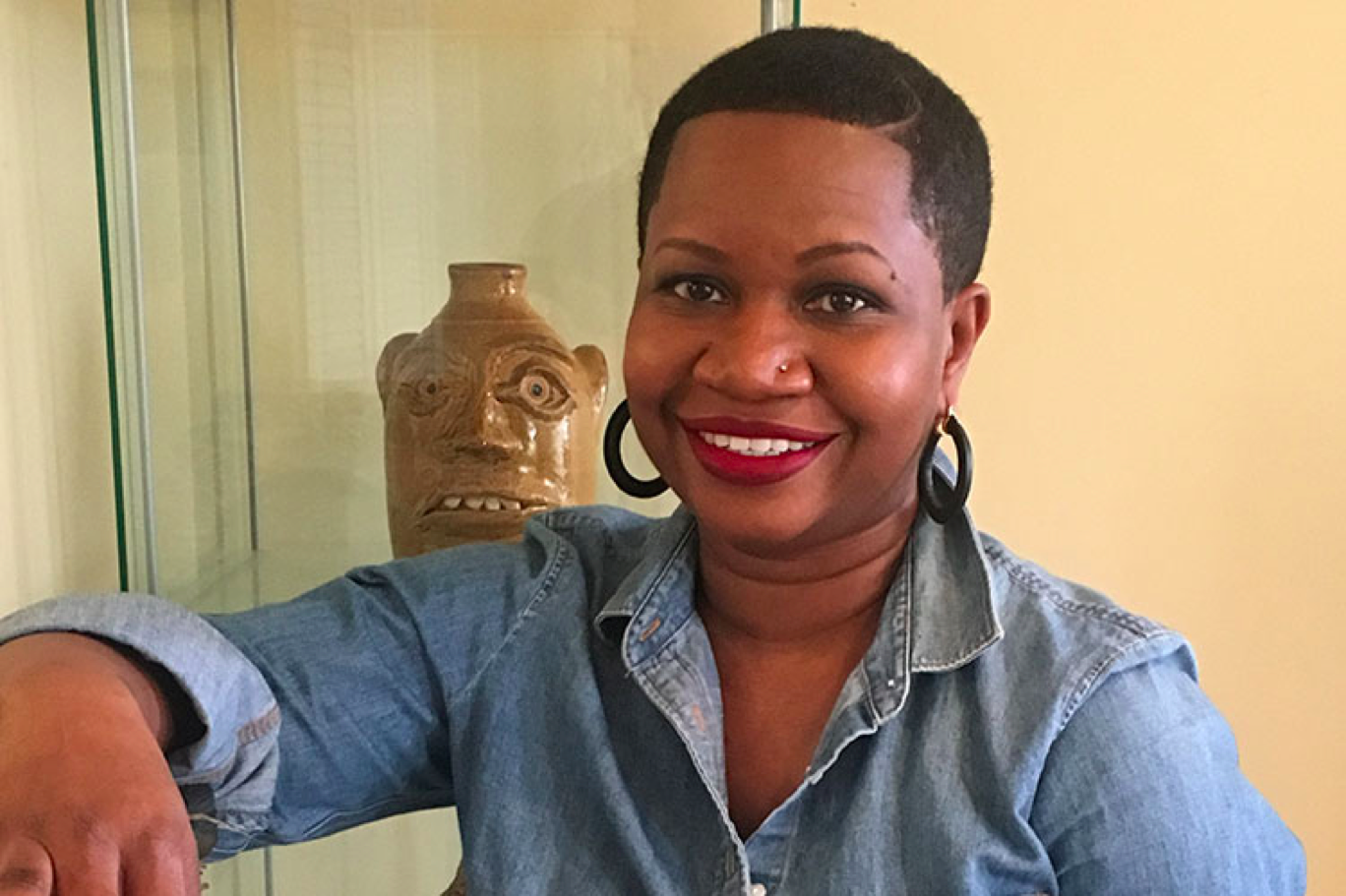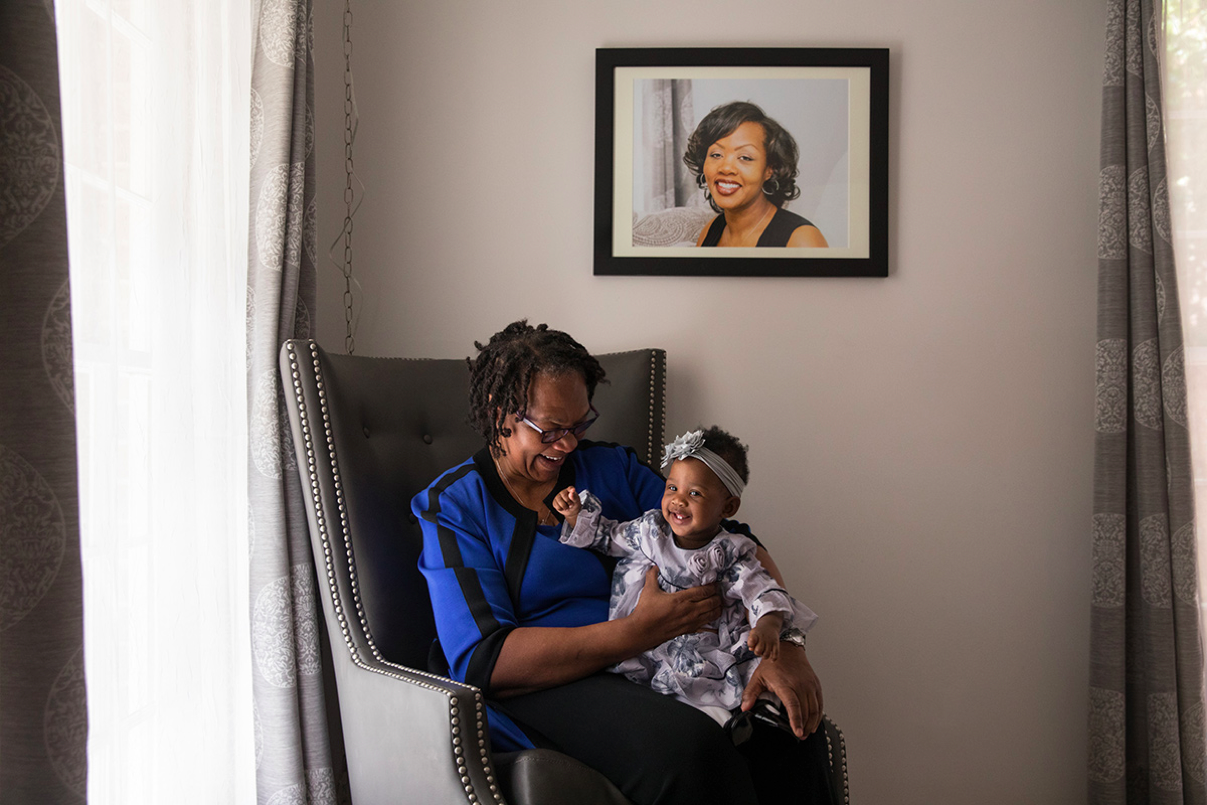By Margaret Gaw

In her book, Medical Bondage, and her discussion with the Center for Global Women’s Health Technologies (GWHT) on September 18, Dr. Deirdre Cooper-Owens detailed how the history of American obstetrics and gynecology is rooted in racial slavery.
Dr. Cooper-Owens spoke about how during the period of racial slavery, as gynecological research began, Black lives did not matter. She writes in her book: “Most American doctors believed that blackness was not only the hue of a person’s skin, but also a racial category that taught substantive lessons about the biology of race and the so-called immutability of blackness.” She coined the term ‘Medical Superbody’ to define the narrative encompassing how white medical practitioners believed the black body was immutable.

Deep-seated racist ideology maintained white supremacy. Experimentation upon enslaved women during the birth of gynecology and the failure to acknowledge the pain of black patients left a legacy that is manifested in the unequal treatment of black patients today. The theory of the ‘Medical Superbody’ persists as doctors, within a structurally racist environment, ignore or diminish black women’s pain.
One account of anti-black violence in the medical establishment is the story of Shalon Irving, an epidemiologist with the U.S. Centers for Disease Control and Prevention, who died in 2017 from complications of hypertension a few weeks after giving birth. Despite her access to high-quality care and multiple visits to primary care providers after her pregnancy, Irving was advised to wait for concerning symptoms and pain to pass. Irving tragically died a few days later.

According to Harvard Public Health Magazine, Irving’s friend Raegan McDonald-Mosley, chief medical director for Planned Parenthood, responded: “you can’t educate your way out of this problem. You can’t health-care-access your way out of this problem. There’s something inherently wrong with the system that’s not valuing the lives of black women equally to white women”(Roeder). Particularly related to how medical practitioners perceive black women’s pain and health concerns, as seen through Dr. Cooper-Owens’s work, this unequal valuing of lives has a harrowing history embedded in racial slavery and tragic implications for the experiences of black women today.

Data surrounding maternal mortality attests to this history. Black women are there to four times more likely to die during childbirth than white women. Oftentimes, doctors ignoring or diminishing black women’s pain leads to fatal outcomes. One 2012 study noted by the Washington Post found that “an analysis of 20 years of published research in the United States found that African American patients reporting pain were 22 percent less likely than white patients to get pain medication from their doctors.”
As a pre-medical student, I remember witnessing examples of this data firsthand when shadowing a women’s health practitioner. A black patient came in with an infected Bartholin’s cyst, a lump near the vaginal opening. She noted discomfort with walking around and that her pain had grown to become a distraction when she was sitting all day in her workplace. The white doctor responded dismissively, saying she should frequently clean the area with warm water and monitor her symptoms. When I asked the practitioner later about how he diminished her pain, he did not seem to find an issue with his assessment. I felt the power hierarchy clearly in that medical examination room, demonstrating how forces such as racism and sexism endanger the health of patients.
Amidst the Covid-19 pandemic and BLM movement, there is a reckoning in American obstetrics and gynecology with its legacy of slavery. There is an urgency to call upon a holistic view of history and begin breaking down parts of structural violence. To excise the ingrained anti-blackness from the body politic of medicine, human-centric values, respect, listening, evasion of patient-blaming, education on anti-racist practices, and specifically equitable medical education are all vital. The history and reality of women’s health has fueled a movement toward a new narrative of decolonization in which American obstetricians and gynecologists treat the pain and medical concerns of black women with awareness, equity, and care.
Sources:
- https://news.berkeley.edu/2020/02/17/historian-uncovers-gynecologys-brutal-roots-in-slavery/
- https://www.washingtonpost.com/health/is-bias-keeping-female-minority-patients-from-getting-proper-care-for-their-pain/2019/07/26/9d1b3a78-a810-11e9-9214-246e594de5d5_story.html
- Cooper Owens, Dierdre. Medical Bondage. University of Georgia Press, 2017, JSTOR, www.jstor.org/stable/j.ctt1pwt69x.10?seq=1#metadata_info_tab_contents.
- Roeder, Amy. “America Is Failing Its Black Mothers.” Harvard Public Health Magazine, 10 June 2020, www.hsph.harvard.edu/magazine/magazine_article/america-is-failing-its-black-mothers/.


